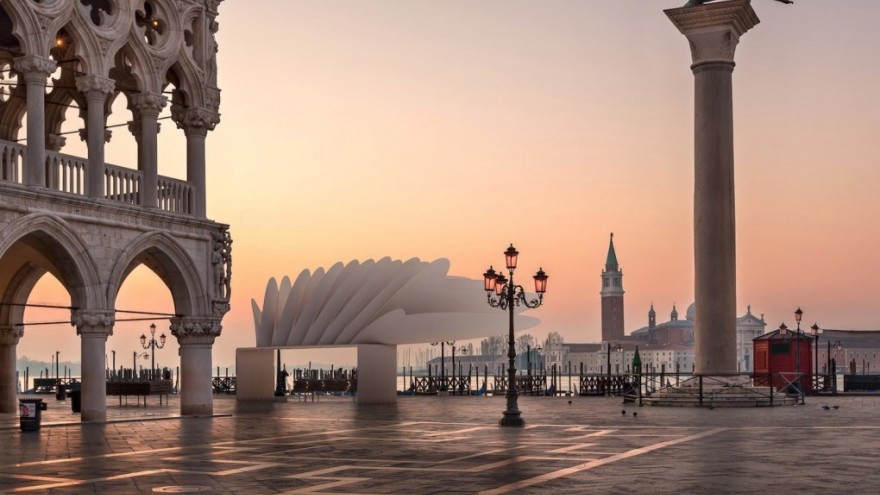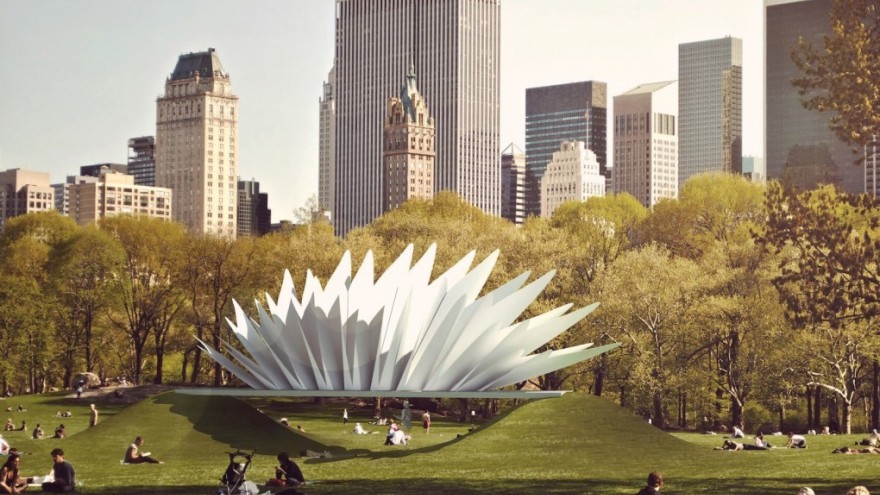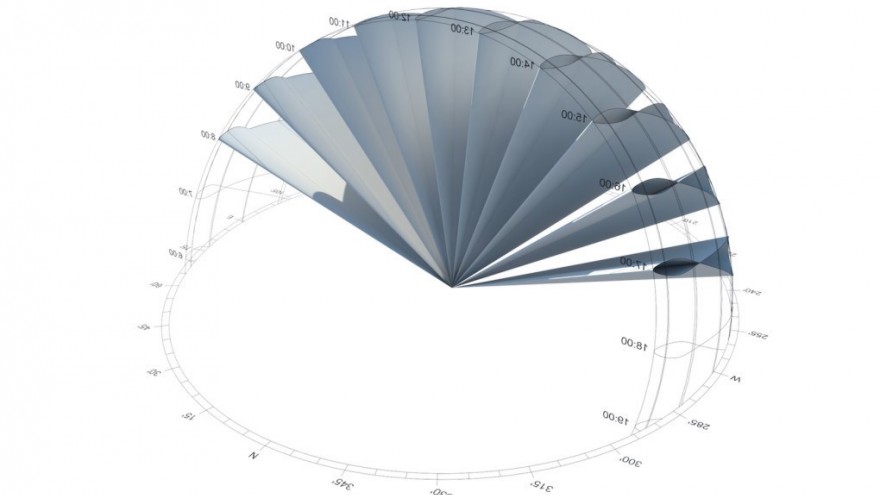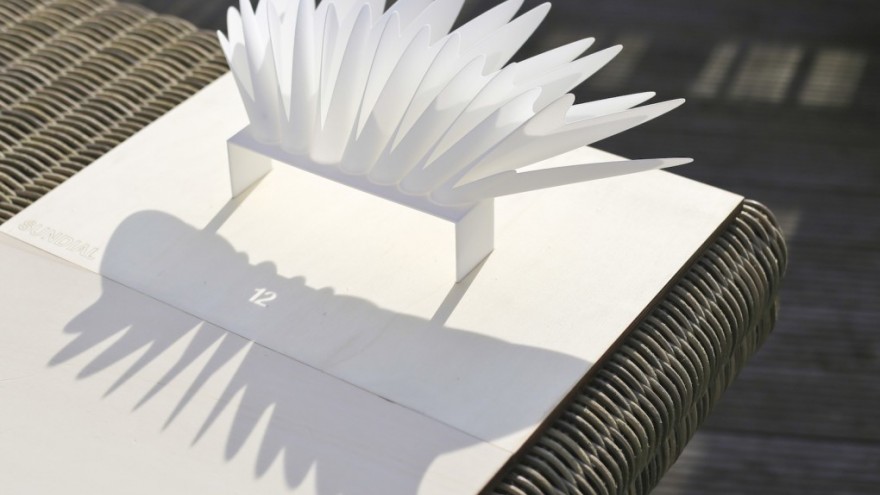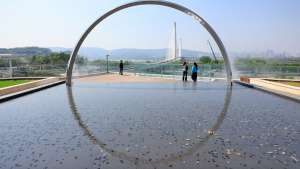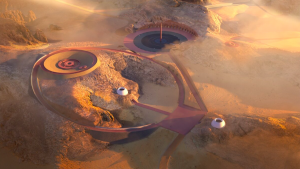Amsterdam-based urban design and architecture studio prescription. has teamed up with sustainable design and engineering firm Arup to create a contemporary sundial for the city of Amsterdam. The contemporary installation resembles a flower in bloom. It changes shape and casts an interesting shadow in relation to the direction of the sun’s path.
The sundial has been designed with 3D-printed, flexible but durable plastic sheets that look like petals. With a small prototype, the designers demonstrate how they take solar path data from the sun and feed it into a unique algorithm that allows the plastic sheets to respond to each hour of daylight. In a fan-like movement, the sundial traces the direction of the sun’s rays and displays the time with digits cast by its shadow.
The beauty of the design is that it will take on different forms depending on where in the world it is situated as the sun’s path changes from place to place. The sundial is set to be installed in Amsterdam but because the 3D-printing technology allows the design to be scalable, the designers envisage multiple uses for the sundial in public spaces, event spaces and even at home.
Studio prescription. is a design group that specialises in programming solutions for architectural design and experimenting with computational techniques to optimise landscapes and structures.

